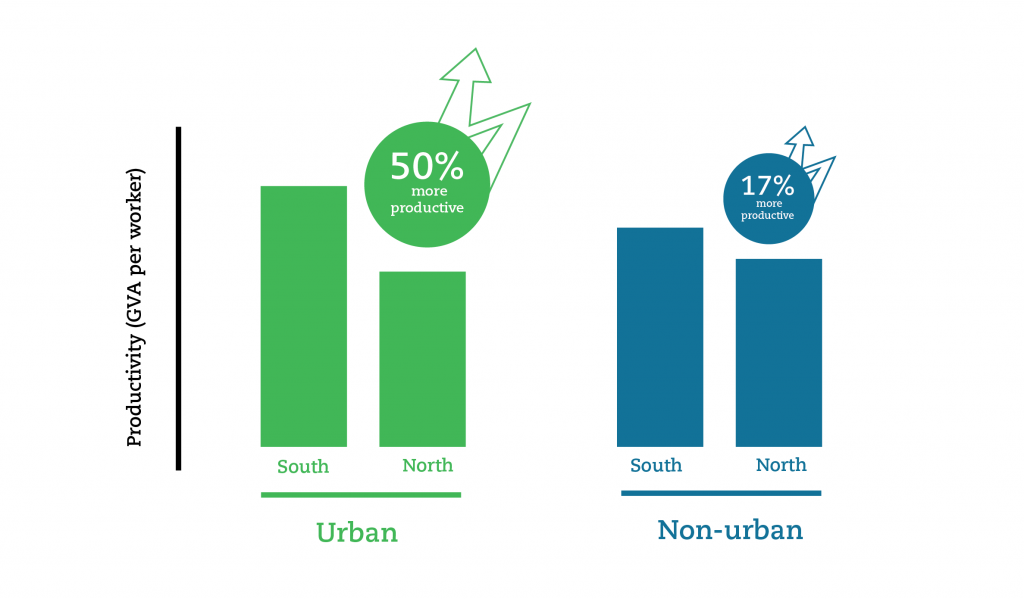How can the next government improve prosperity?
As the UK prepares to go to the polls once again on 8th June, one theme has characterised the main political parties’ electoral campaigns – the need to raise prosperity and growth for people living across the country, as we prepare to leave the European Union. Slogans such as the Conservatives’ “building an economy that works for everyone”, or Labour’s “standing up for the many, not the few”, reflect a concern about the UK’s economic divides and so-called ‘left behind’ people and places, which many commentators believe drove the vote for Brexit last summer.
However, despite the increased focus on improving prosperity up and down the country, and a growing understanding in recent years of the diverse role that different places play in the economy, policy discussions about the economy are still largely national in focus.
In reality, the issues that underpin the economic divides which national leaders are pledging to address – such as productivity, skills and housing – play out very differently across the country. And for the next government to successfully tackle these issues, they must put in place policies which reflect this differing geography. In particular, the national economy clusters in cities – which account for just 8 per cent of land, but 54 per cent of the population and 60 per cent of jobs – and which should be central to any policies to strengthen the economy.
This piece sets out three big issues that the next Government must address if it is to improve prosperity and growth for the greatest number of people across the UK.
1.Tackle poor productivity to raise standards of living
Productivity largely determines standards of living. And this is why there has been so much concern over the UK’s poor productivity performance in recent years – as the Chancellor pointed out in the Autumn Statement, it takes a German worker four days to produce what a UK worker does in five.
But this varies hugely across the country. The Greater South East of England is more productive than Germany. But this cannot be said for many other parts of the UK. In 2015, a worker in the Greater South East produced in around three and a half days what it took a worker in the North and Midlands to produce in five.
This divergence is principally because of the differences in the performance of cities within different regions of the UK. The chart below compares productivity in the urban and non-urban parts of the Greater South East and the North of England (just two areas are used here for simplicity, but the point holds for other areas too). In 2015, the non-urban parts of the Greater South East were 17 per cent more productive than non-urban parts of the North. But the gap was much larger for urban areas – cities in the Greater South East were 50 per cent more productive than those in the North.
What does this mean in terms of money? If the non-urban areas of the North were as productive as the Greater South East, the North’s economy would be £17 billion larger. But if the North’s cities were as productive as cities in the Greater South East, the North’s economy would be £154 billion larger, or £23,000 for every worker. That’s equivalent to adding three more city economies the size of Manchester to the North of England.


